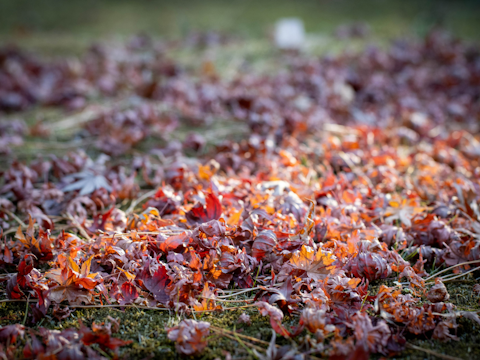
About grasscycling
Grasscycling is a simple, practical technique that consists in leaving grass clippings on the ground after mowing.
The advantages of grasscycling
- The best fertilizer for any plant is its own foliage! Grass is composed mainly of nitrogen and water. By leaving the clippings on the ground, you’re letting the nutrients and elements essential for its growth return to the soil.
- Grasscycling makes your lawn more resistant to weather conditions like drought and pests like grubs.
- Grass clippings left on the ground act as a natural fertilizer, letting you forgo fertilizers and pesticides that are harmful to our health and the environment.
- In addition to saving money, grasscycling saves you time by minimizing lawn maintenance. This means that you have more time to really enjoy your summer!
Please note that it is forbidden to throw grass in the garbage bin in the following municipalities: Abercorn, Bedford, Bedford Township, Bolton-Ouest, Brigham, Brome, Bromont, Dunham, East Farnham, Farnham, Frelighsburg, St-Armand, Ste-Sabine, Stanbridge East and Sutton.

About leafcycling
Leafcycling involves mowing fallen leaves rather than raking them up.
The advantages of leafcycling
- As leaves fall, they provide your soil, lawn and plants with the necessary minerals to make it through the winter.
- Leafcycling means you’ll no longer need to rake up all the leaves that fall on your property in the autumn—think of all the time and energy you could save!
- Leaving shredded leaves on the ground reduces the need for watering, as they help create a protective layer of organic matter that keeps water in the soil.
- Leafcycling saves you money. You’ll buy fewer paper bags for leaf and garden waste collections and save on mulch if you spread shredded leaves in your flower beds.
Tips and tricks
Whether you’re cutting the grass or shredding leaves, it’s always best to mow in dry weather.
Mow your lawn frequently and cut no more than a third of its length. This promotes a clean cut that makes the grass stronger.
We recommend mowing the leaves when they cover less than half of your yard. If you have waited too long, you can place the dry leaves in a large container and shred them with a hedge trimmer. This will allow you to use the shredded leaves as mulch in your flower beds!
To optimize the distribution of grass clippings on your lawn and to get the most out of grasscycling, alternate your mowing pattern from time to time. You can also mow over dead leaves twice to cut them into smaller pieces.
Myths
FALSE.
All blades can be used for mulching. Even newer reel lawn mowers can mulch pretty well.
FALSE.
Thatch is the result of abnormally rapid root growth caused by inadequate fertilization and watering.
FALSE.
Grass clippings decompose quickly and are no longer visible after a day or two. If that’s not fast enough, try mowing the lawn later in the day so the clippings can decompose over night.